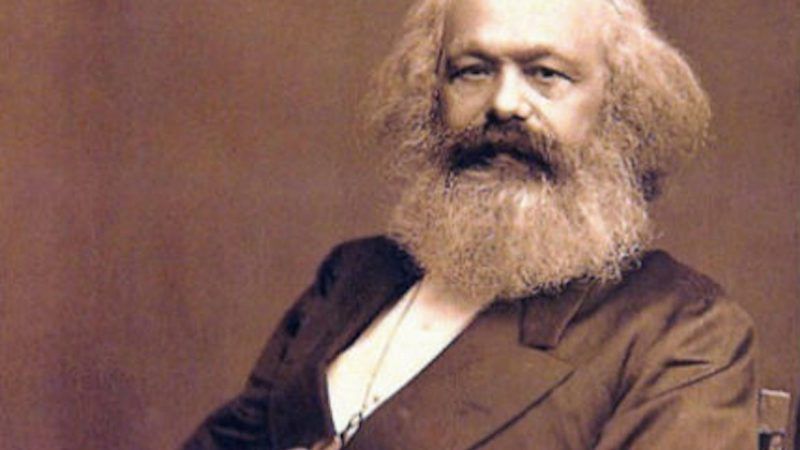On Free Trade, Even Karl Marx Is Smarter Than Donald Trump
Marx “was a champion of free trade, and no friend of tariff barriers.”

Donald Trump is an avowed enemy of free trade. "We must protect our borders from the ravages of other countries making our products, stealing our companies, and destroying our jobs," Trump declared in his 2017 inaugural address. "Protection will lead to great prosperity and strength."
Most economists disagree with that assessment. As they will tell you, free (or even just freer) trade benefits all parties involved. Protectionism, by contrast, hurts consumers and businesses alike.
Unfortunately, Trump is not alone in his economic ignorance. Socialist Sen. Bernie Sanders (I–Vt.) also dislikes free trade, denouncing it as "part of a global race to the bottom to boost the profits of large corporations."
Perhaps Trump and Sanders should each spend a little time studying Karl Marx. Yes, that Karl Marx. Although the fact is often forgotten today, Marx had a number of positive things to say about what we now call globalization. As the left-wing economist Meghnad Desai documented in his enlightening 2002 book Marx's Revenge: The Resurgence of Capitalism and the Death of Statist Socialism, Marx "was a champion of free trade, and no friend of tariff barriers." Indeed, Marx saw global capitalism as a revolutionary force that, in the words of The Communist Manifesto, "rescued a considerable part of the population from the idiocy of rural life." What is more, the Manifesto continued:
The bourgeoise, during its rule of scarcely one hundred years, has created more massive and more colossal productive forces than have all preceding generations together. Subjection of Nature's forces to man, machinery, application of chemistry to industry and agriculture, steam-navigation, railways, electric telegraphs, clearing of whole continents for cultivation, canalization of rivers, whole populations conjured out of the ground—what earlier century had even a presentiment that such productive forces slumbered in the lap of social labor?
To be sure, Marx welcomed these revolutionary capitalist forces because he saw them as the means to an end. Namely, he believed that they would shape and form a self-aware proletariat class, which, in turn, would then lead the world into a glorious communist future (the details are hazy about how that part was supposed to happen). But in the meantime, Marx absolutely wanted free trade to thrive so that capitalism could work its magic. This is the same process, incidentally, that the economist Joseph Schumpeter famously likened to a "gale of creative destruction,"
Alas, if only Trump and Sanders could be as smart about free trade as Marx and Schumpeter.


Show Comments (157)